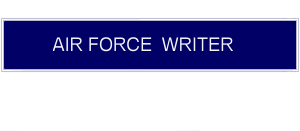Bioenvironmental Awards
Master Sergeant Francisco J. Brown distinguished himself by meritorious service while serving as Bioenvironmental Engineer, 768th Expeditionary Air Base Squadron, 409th Air Expeditionary Group, 435th Air Expeditionary Wing, Niamey, Niger. During this period, Sergeant Brown directly contributed to the successful initiation of 150 health risk assessments across seven shops and carefully implemented 107 hazardous controls to ensure safety for over 400 personnel. As the sole bioenvironmental engineering specialist in United States Air Force Africa, he established the first ever environmental sampling plan, which included 49 standard operating procedures, and aligned base operations with U.S. drinking water standards. In addition, Sergeant Brown surveyed 45 high risk radiation sites, directly ensuring the safety of 150 workers and the missions of Special Operations Command Africa, and enabling eight operations in 14 nations. Furthermore, Sergeant Brown played a vital role in protecting the base's sole food source by eradicating 23 health hazards through regular food inspections. Finally, he reviewed and approved 11 base projects valued at more than one million dollars, earning him Expeditionary Air Base Squadron Bioenvironmental Engineer of the month. The distinctive accomplishments of Master Sergeant Brown reflect credit upon himself, the 768th Expeditionary Air Base Squadron and the United States Air Force.
Technical Sergeant Tavaris M. Scott distinguished himself by meritorious service while serving as Flight Chief, Bioenvironmental Engineering, 366th Operational Medical Readiness Squadron, 366th Fighter Wing, Mountain Home Air Force Base, Idaho. During this period, Sergeant Scott led eight Airmen in managing 28 programs to ensure the health and safety of 2,200 workers working in 91 industrial centers. Additionally, he spearheaded the Secretary of Defense directive for rapid water testing and initiated action when the Wing's water was found to be contaminated, eliminating the source of contamination so effectively that their risk communication plan was adopted Air Force wide. Moreover, as Fighter Wing Plans and Receptions clerk, he organized 37 temporary duty visits for over 2,200 personnel and 101 aircraft, bolstering the Fighter Wing's number one priority of sortie generation. Furthermore, when Phase II exercises were reinstituted, he identified a Wing communication limiting factor and corrected it by developing a base wide plan for Mission Oriented Protective Posture notification for 3,300 Airmen. The distinctive accomplishments of Technical Sergeant Scott reflect credit upon himself, the 366th Operational Medical Readiness Squadron and the United States Air Force.
Staff Sergeant Michael B. Coolidge distinguished himself by meritorious service while serving as Noncommissioned Officer in Charge of Environmental Compliance, Bioenvironmental Engineering Flight, 81st Aerospace Medicine Squadron, 81st Medical Group, Keesler Air Force Base, Mississippi. In this important assignment, Sergeant Coolidge revised the entire Environmental Compliance program, ensuring compliance with federal regulations and the safety of 30,000 base personnel. As Bioenvironmental Engineer, his actions vere vital to the health of Keesler Air Force Base after Hurricane Katrina. He promptly sampled the entire water system and quelled water quality concerns for the base population. In addition, he established the base heat stress website notification system which provided heat indexes by computer and giant voice, ensuring awareness and safety during critically high temperatures. Further, Sergeant Coolidge developed the first multi agency online gas mask fit test scheduler, streamlining gas mask testing and reducing no-shows from thirty to two percent. The distinctive accomplishments of Staff Sergeant Coolidge reflect credit upon himself, the 81st Aerospace Medicine Squadron, and the United States Air Force.
